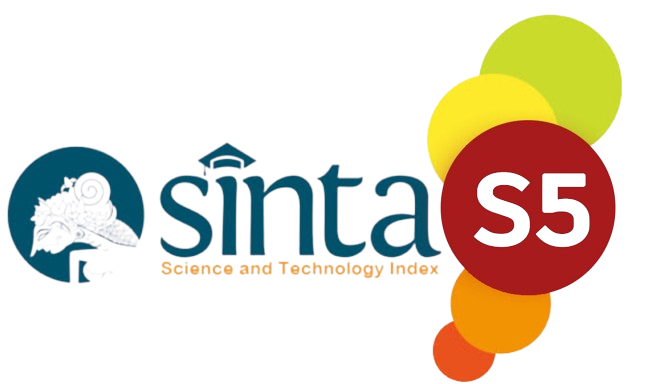Diagnostic And Analysis Misconceptions In Learning Redox And Electrochemistry Topic In Chemistry Students
Abstract
The research’s objective to know students misconceptions on redox and electrochemistry concept, the sources of students misconceptions, to avoid misconception by students worksheet. involved 30 students was studied general chemistry in chemistry department, Islamic State University of Syekh Ali Hasan Ahmad Addary Padangsidimpuan. Instrument of the research is diagnostic test with three tier question to know misconceptions on students, interview sheet to know sources of misconceptions. The result of research are (1) It was founded that students had misconceptions on redox and electrochemistry concept with percentage 52.6% .(2) It was founded 3 sources that affect students misconceptions on redox and electrochemistry, that are Students, have wrong interpreted from books and teacher, Internet that has many unbelievable sources, Friends that have wrong concept and sharing to other students.
Keywords
Full Text:
PDFReferences
Bagayoko. (1999). Misconceptions and the Certainty of Response Index (CRI). Article in Physics Education. 4(5). DOI: 10.1088/0031-9120/34/5/304
Bilgin, I., Uzuntiryaki. E., Geban. O., (2003) Student’s Misconceptions on the Concept of Chemical Equilibrium. Journal of Education and Science 28 (127) 10-15
Carbo, A.D., Adelantado. J.V.G., Reigh.F.B., (2009). Misconceptions and Metaconceptions in Instrumental Analysis. Acta Science 11(1)
Chang, R. (2011) General Chemistry:The Essential Concepts. New York : McGraw Hill.
Duit, R., Niedderer, H., & Schecker, H. (2007). Teaching physics. In S. K. Abell & N.G. Lederman (Ed.), Handbook of research on science education (pp. 599–629). London: Routledge
Galley, W,C. (2004). Exothermic Bond Breaking: A Persistent Misconception. Journal of Chemical Education 81(4)
Geban. O., Dindar.A.C., (2011). Development of a three-tier test to assess high school students’ understanding of acids and bases. Procedia Social and Behavioral Sciences 15 (2011) 600–604. doi:10.1016/j.sbspro.2011.03.147
Geban. O., Kirbulut.Z.D., (2014) .Using Three-Tier Diagnostic Test to Assess Students’ Misconceptions of States of Matter. Eurasia Journal of Mathematics, Science & Technology Education. 10(5), 509-521
Gurel, D. K., Eryilmaz, A., & McDermott, L. C. (2015). A review and comparison of diagnostic instruments to identify students’ misconceptions in science. Eurasia Journal of Mathematics, Science and Technology Education, 11(5), 989–1008.
Huddle, P. A., White. M.D., Rogers. F., (2000). Using a teaching Model To Correct Known Misconception in Electrochemistry. Chemical Education Research 77(1)
Khay,C.C., Yiin, H.K.,. (2010) Misconceptions In The Teaching Of Chemistry In Secondary Schools In Singapore & Malaysia. Proceedings of the Sunway Academic Conference.
Kolomuc, A., Tekin, S., (2011). Chemistry Teachers’ Misconceptions Concerning Concept of Chemical Reaction Rate. Eurasian Journal of Physic and Chemistry Education. 3(2) : 84-101
Milenkovic, D.D., Hrin, T.N., Segedinac, M.D., Horvat, S., (2016). Development of a Three-Tier Test as a Valid Diagnostic Tool for Identification of Misconceptions Related to Carbohydrates. 10
Milenkovic, D.D., Hrin, T.N., Segedinac, M.D., Horvat, S., (2016). Identification of Misconceptions through Multiple Choice Tasks at Municipal Chemistry Competition Test. Journal of Subject Didactics, 1(1) 3-12
Muchtar. Z.,Harizal (2012) Analyzing of Students’ Misconceptions on Acid-Base Chemistry at Senior High Schools in Medan. Journal of Education and Practice, 3(15)
Nahum,T. L., Hofstein, A., Namaan, R.M., Bardov, Z., (2004). Can Final Examinations Amplify Students’ Misconceptions In Chemistry?. Journal Of Chemistry Education: Research And Practice 5(3)
Peterson, R.F., Treagust, D.F., (1989) Grade-12 Students' Misconceptions of Covalent Bonding And Structure. Journal of chemical Education 66(6)
Sanger, M.J., Greenbowe, T. J., (1999). An Analysis of College Chemistry Textbooks As Source of Misconception And Error in Electrochemistry. Journal of Chemical Education 76(6)
Sanger,M.J., (1996). Identifying, attributing, and dispelling student misconceptions in electrochemistry. Retrospective Theses and Dissertations. Iowa : Digital Repository @ Iowa State University
Satilmis, Y,. (2014). Misconceptions About Periodicity In Secondary Chemistry Education: The Case Of Kazakhstan. International Online Journal of Primary Education 3(2)
Turkmen, H., Usta, E., (2007). The Role Of Learning Cycle Approach Overcoming Misconceptions In Science. Kastamonu Education Journal 15(2)
Tuysuz. C., (2009) Development Of Two-Tier Diagnostic Instrument And Assess Students’ Understanding In Chemistry. Scientific Research and Essay Vol. 4 (6) pp 626-631
Widarti, H. R., Permanasari. A., Mulyani.S., (2016) Student Misconception On Redox Titration (A Challenge On The Course Implementation Through Cognitive Dissonance Based On The Multiple Representations. Jurnal Pendidikan IPA Indonesia. 5(1)
DOI: https://doi.org/10.24952/lavoisier.v3i1.10797
Refbacks
- There are currently no refbacks.
Copyright (c) 2024 Ervi Luthfi Sheila Lubis

This work is licensed under a Creative Commons Attribution-ShareAlike 4.0 International License.







Lavoisier:Chemistry Education Journal is licensed under a Creative Commons Attribution-ShareAlike 4.0 International License. Copyright © 2022 Lavoisier: Chemistry Education Journal.All rights reserved.


